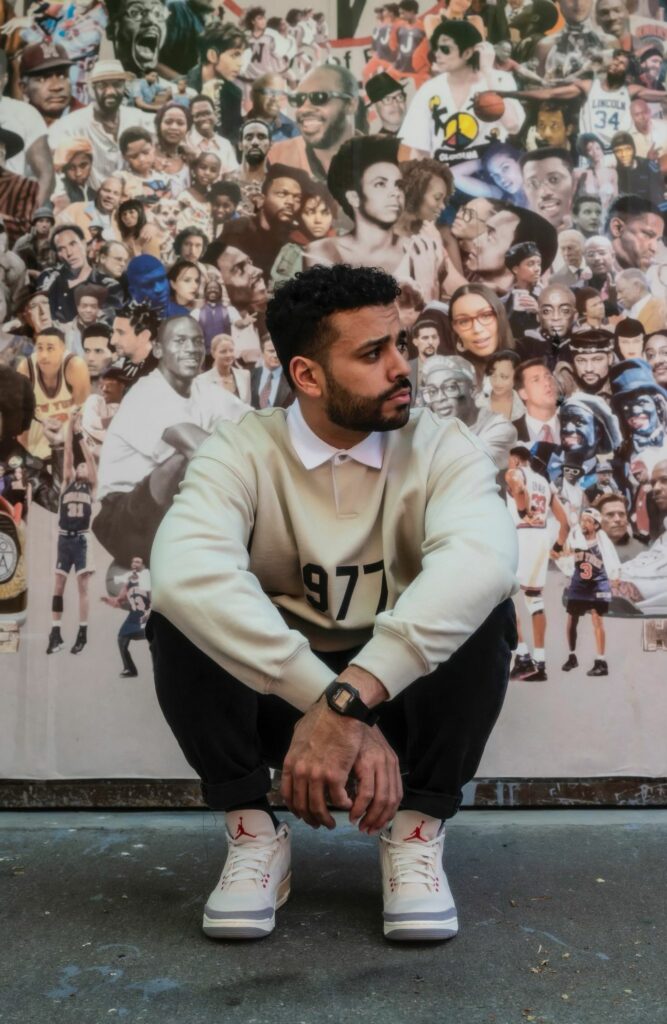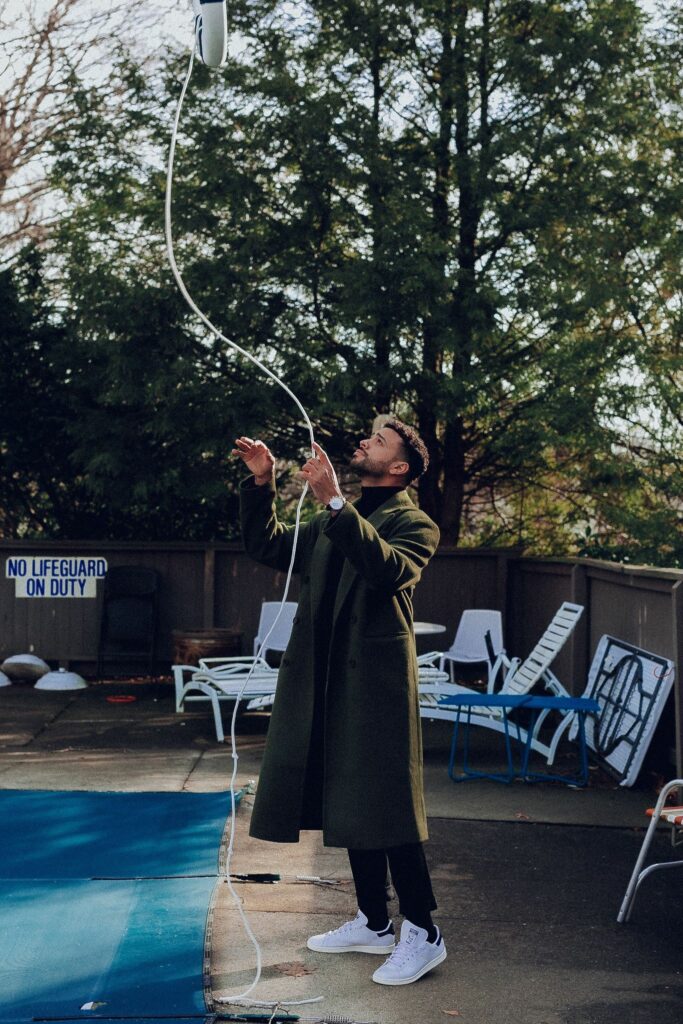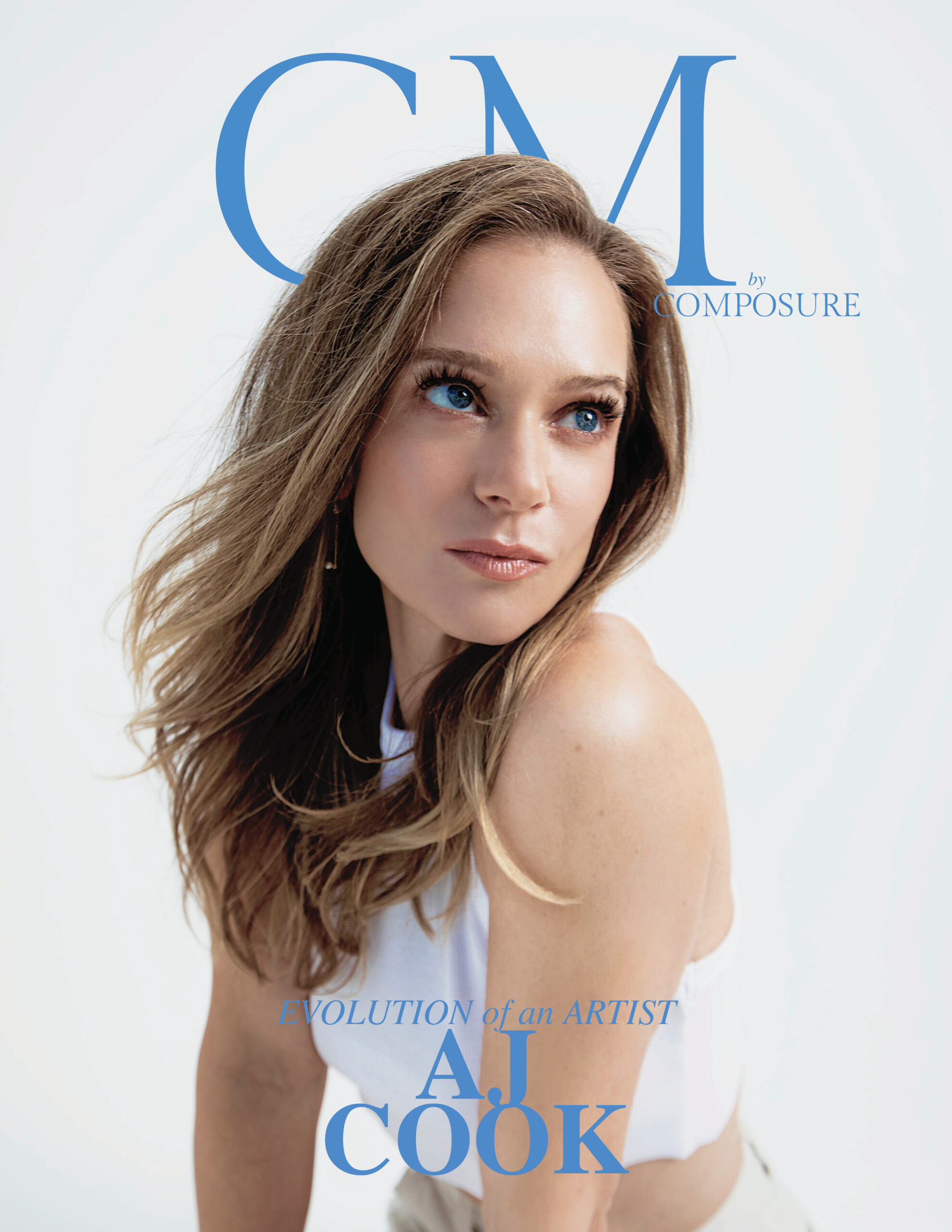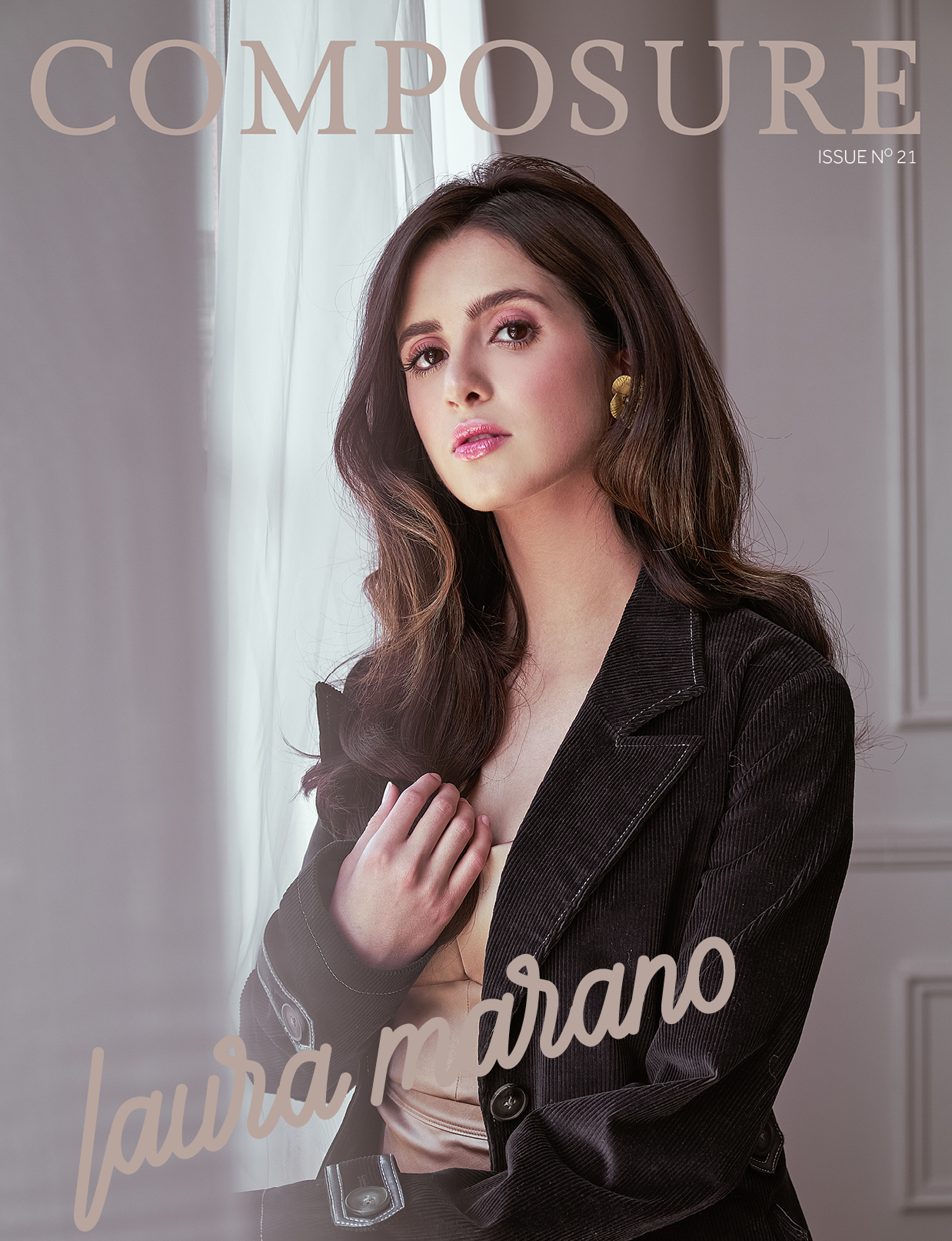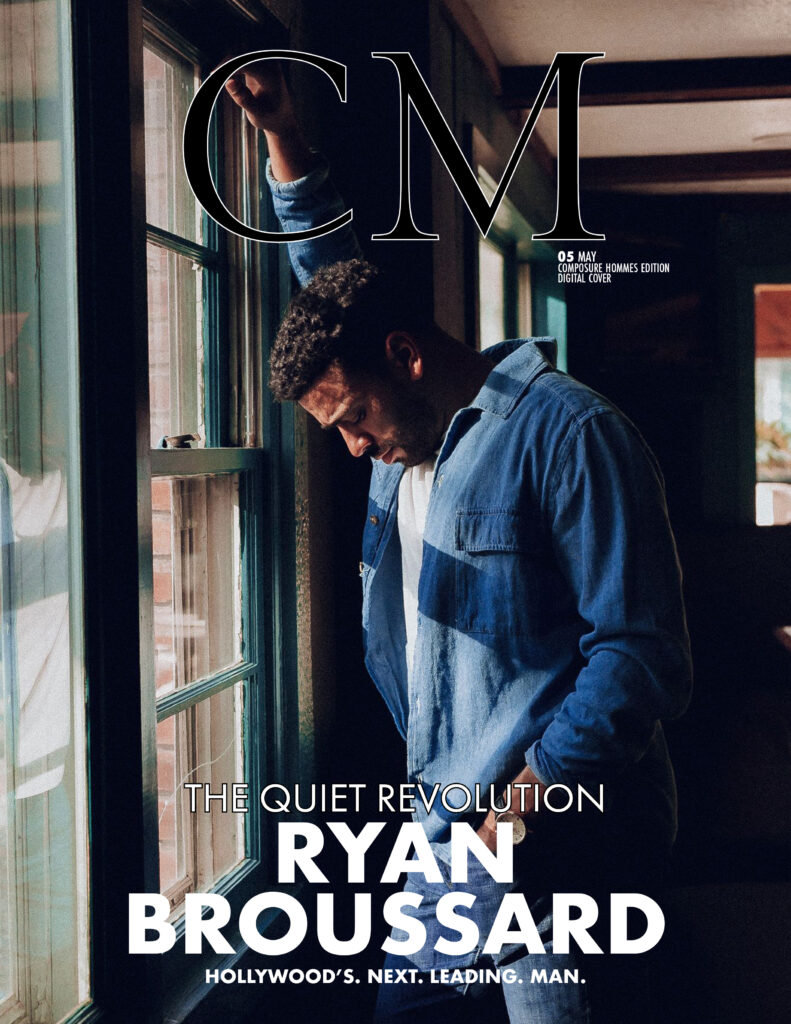
Photography by Emma Pilkington Mead
Ryan Broussard: The Quiet Revolution from Athlete to Hollywood’s Next Leading Man
There’s a certain allure to those who redefine the rules mid-game. The ones who don’t follow the script they were handed, but instead walk offstage entirely, only to reemerge in an entirely different genre—the ones who abandon a life set in stone to chase something intangible, uncertain, something artful. You can’t quite look away from them. Maybe it’s the elegance in the risk. Maybe it’s the quiet rebellion or maybe it’s that rare fusion of discipline and instinct, forged in pressure, failure, and triumph, all in front of an audience.
Ryan Broussard is one of those people.
Born and raised in the southern heartbeat of Louisiana, his first act was played out on baseball diamonds under stadium lights. As a professional player in the Los Angeles Angels minor league system, his world was defined by stats, routine, and relentless physicality. But somewhere between dugouts and data, a quieter voice broke through, the kind that doesn’t shout but insists. A calling that wasn’t about winning or losing, but about feeling, becoming, and transforming. The kind that trades cleats for scripts and locker rooms for green rooms.
From the humid poetry of the South to the kinetic tension of New York City, Broussard’s second act unfolded not with fanfare but with precision. He didn’t explode onto the scene, he emerged. With training at the University of Louisiana at Lafayette and an MFA from Brown University, he immersed himself in the craft, layering skill over instinct, and method over momentum. There is nothing rushed about his evolution, it’s measured, intentional, and deeply felt.
If his shift from athlete to actor seems radical, his performances make it feel like destiny. In Only Murders in the Building, he steps into the shoes of Will Putnam, a veterinarian, the grounding force and the calm counterpoint to Martin Short’s flamboyant Oliver. Broussard brings a delicate depth to the character, a quiet, watchful intensity that anchors every scene. He turns the role into something more than just a foil to the chaos; Will becomes a vessel for vulnerability, subtly suggesting that even in a world of strange conspiracies and murder mysteries, tenderness and humanity still have a place.
Similarly, in Alert: Missing Persons Unit, Broussard steps into the emotionally complex role of Mike Sherman, a character shaped by grief, guilt, and the weight of unspoken truths. Here, he doesn’t just portray a detective on the hunt for answers; he lays bare the internal turmoil that drives him, a man whose resolve cracks under the pressure of personal stakes, revealing the raw edges of a soul trying to reconcile its sense of duty with its buried pain. In each performance, Broussard brings a natural cinematic rhythm to his roles, a quiet control that makes even the most fleeting moments feel monumental. His characters move not in broad strokes, but in finely-tuned subtleties, the slight shift in a gaze, the pause between words, and the weight of silence, transforming each role into a compelling study of complexity, restraint, and heart.
In The Big Short and Jack Reacher: Never Go Back, Broussard brings a grounded presence that cuts through the noise of both films, anchoring scenes with his subtle yet impactful performances. In The Big Short, amidst the whirlwind of financial chaos and razor-sharp wit, Broussard’s role is a steady force, a quiet observer who embodies the everyday man caught in the system’s devastating collapse. He doesn’t overshadow the bigger personalities; rather, he serves as a reminder of the human cost behind the headlines. Similarly, in Jack Reacher: Never Go Back, Broussard’s character is far from a typical action film presence. He blends seamlessly into the high-octane world of the film, offering an understated depth that adds texture to the intense, fast-paced narrative.
What makes Ryan Broussard captivating isn’t just his talent, it’s his tone. He possesses that rare elasticity: the ability to shift between charm and gravity, stillness and intensity, without ever breaking character. His range is quiet but piercing. The kind that sneaks up on you, until you realize you’re fully invested.
It’s no surprise he honed that sensitivity on stage, including a standout performance on Broadway in Take Me Out, where the stakes were emotional, not just performative. Theatre gave him rhythm, stillness, and an understanding of space, not just the physical kind, but the emotional architecture between characters, between words.
In a time when everyone is trying to be everything, Ryan Broussard is doing something far more radical: he’s being real. And in that realness, wrapped in southern grit, Brooklyn edge, and a craftsman’s devotion to the long game, you find not just an actor, but a storyteller. A man who listens before he speaks. Who builds before he performs, who transforms not to impress, but to express.
So now, step behind the curtain with Ryan Broussard as he unpacks the plot twists of his real-life script. From dugouts to dialogue, from stadiums to sets, this is a conversation that reads like a screenplay you won’t want to put down.
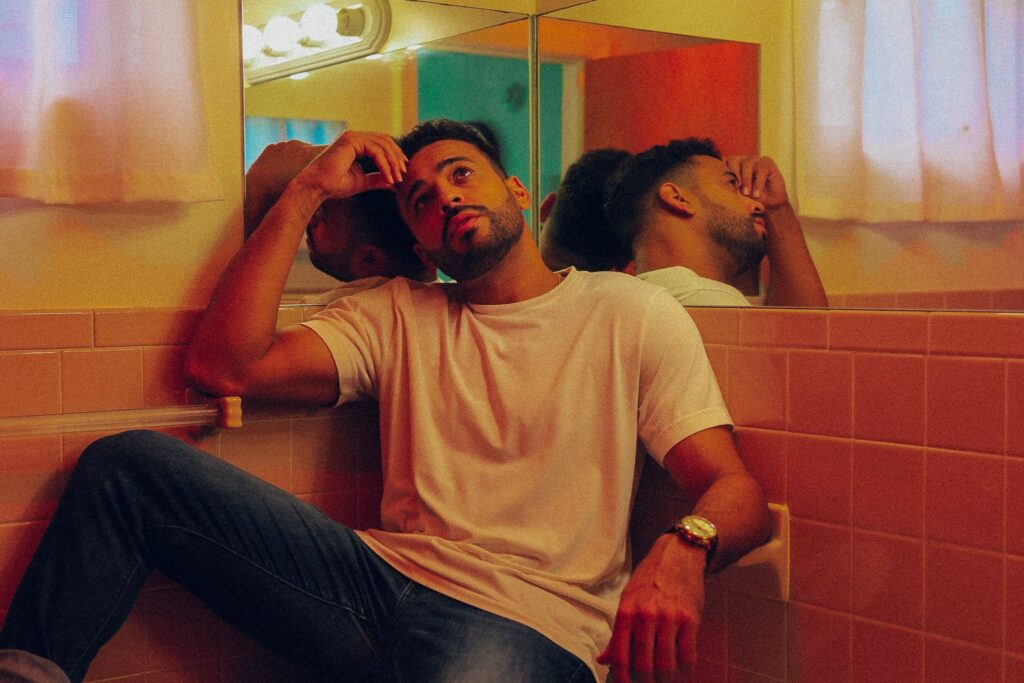
Ryan, your journey from professional baseball to the world of acting is both unexpected and inspiring. What was the pivotal moment or motivation behind this significant career shift, and how has your athletic background influenced your approach to the craft of acting?
I think acting was something I was always interested in from an early age. I grew up watching a ton of movies and stand-up comedy and it got me tapped into my imagination very early on. But sports were such a huge part of my life and took up so much time that I never really got involved in theater or any type of acting until way down the road once I was finished playing. I think acting and sports are very similar because of how much discipline it takes, how mentally strong you must be to succeed, and getting comfortable with failing. You also get to create something with a team and it’s a shared experience and then you get to share that created work with an audience or crowd same as sports.
You honed your skills at both the University of Louisiana at Lafayette and Brown University’s MFA Acting program. How did your education in these institutions shape your artistic approach and your perspective on the evolving landscape of the industry?
Well, undergrad and Graduate School was my first experience with acting and I’m glad I started with stage work before I got into television and film. Denzel Washington has a great interview where he says, “An actor learns how to act on stage.” I completely agree with him. That’s where you tap into your instincts, your improv, and how to connect with another human being through text and dialogue. There are no cameras and there is no director saying cut. I owe a great deal to my theatre education for whatever success I’ve had lately.
Working alongside legendary figures like Steve Martin and Martin Short on *Only Murders in the Building* must have been an incredible experience. What were some of the most valuable lessons you learned from such an esteemed ensemble, and how did it shape your approach to future roles?
Most of the actors that I’ve had the pleasure to work with, I’ve looked up to for quite some time. I’m still not used to it, and I still have some imposter syndrome about it. But they’ve helped me grow and they’ve mentored me throughout this process. It truly is incredible to see how much Steve and Martin after all these years care about one another and I think that we see it in their work. There’s a genuine love that is shown in the performance because the actors, not the characters, trust one another and it allows the work to shine through. When you have an ensemble who are working on that level the job becomes so much easier. And I feel like whatever work that I’m fortunate enough to get, I always try to show up with that energy.
Acting often requires a great deal of vulnerability and emotional exploration. How do you navigate the balance between your own personal experiences and the emotional lives of the characters you portray, especially when dealing with complex or challenging roles?
Although I do think personal experiences sometimes creep into acting, I try my best to rely on the writer to help me connect with whatever emotion the character may be feeling. And when you have really good writing, it will take care of you when those moments of vulnerability are needed. Otherwise, I’m forcing emotion and the audience won’t connect with it or won’t understand why they’re not connecting with it. At that point, we are not doing our job. So, with each project, I really try to rely on the writing and it allows me to be free and get out of my head. The writers know who these characters are better than we do. They wrote it for God’s sake so we should probably trust them.
As you look forward to the future of your career, are there specific genres or character types that particularly excite you? What draws you to these potential roles, and how do you envision them challenging you as an artist?
For the last couple of years, the roles that I’ve gotten to play have mostly been dramatic. So looking forward, I really do hope that I get the chance to do some comedic things. Because I grew up watching a lot of stand-up comedy and sketch comedy, that was probably the hugest influence on me wanting to get into this profession in the first place. Which is why getting to work with legends like Martin Short and Steve Martin will never be normal to me. Comedy doesn’t get enough credit and, in my opinion, it’s the hardest genre to pull off. I think because it’s so challenging, that’s the reason I want to try my hand at it. A room full of people laughing will never not be intoxicating to me.
Your journey through various roles has led you to interact with diverse characters and genres. Is there a role or a moment in your career that made you reflect on your own personal growth, and how has that shaped your view of success in the industry?
It would probably have to be the role of Darren Lemming in the play “Take Me Out” I was able to perform on Broadway a couple of years back. It was a full circle moment for me because when I took my first acting class, we all had to introduce ourselves and talk about our lives a little bit. After I talked about my journey in professional baseball my teacher pulled me aside after class and suggested I read a play called Take Me Out. Having never read a play, I bought it that night, and after one read it was unbelievable how connected I felt to this play. I knew exactly what this world was. A play about a biracial Major League Baseball player and in my head, I figured or at least hoped I would get the opportunity to play this character one day. But I never in a million years would have guessed that it would be on Broadway. When I took the bow at the end of the show I thought about that moment and just how far I had come. I still get chills thinking about it.
For those who are just beginning their journey into acting, especially those with non-traditional backgrounds, what insights can you offer on navigating the competitive and ever-changing nature of the entertainment industry?
I think like most professions, the entertainment industry is ever changing and I don’t necessarily think that it’s a bad thing as long as we’re headed in a positive direction. But every year there’s a new way to create and it’s our job to stay connected to those changes. It allows us to keep growing. It allows us to have new goals. It allows us to keep chasing our full potential. And sure, this profession can be competitive but you’re not necessarily competing with others you’re competing with yourself. There are so many different reasons why you either do or don’t get a job and the sooner you understand that the better. Control the things that you can control which are your effort and your attitude and when you do, you realize the thing that you truly love is the journey and the growth and not the destination.
Finally, with the rapid changes taking place in the entertainment industry, how do you envision the future of film and television, especially when it comes to the production incentives and their potential to foster greater diversity in storytelling?
I think the industry is making a tremendous effort to bring more voices into storytelling and that’s how it should be. It’s how we learn. It’s how we get out of our bubble. I grew up in a small town and every time I visit home, it’s not hard to find people who haven’t experienced life outside of their own experience. I think that’s what is so amazing about acting because most of the time I get to walk in a character’s shoes and they’re nothing like me. The process usually allows me to learn something new about myself.
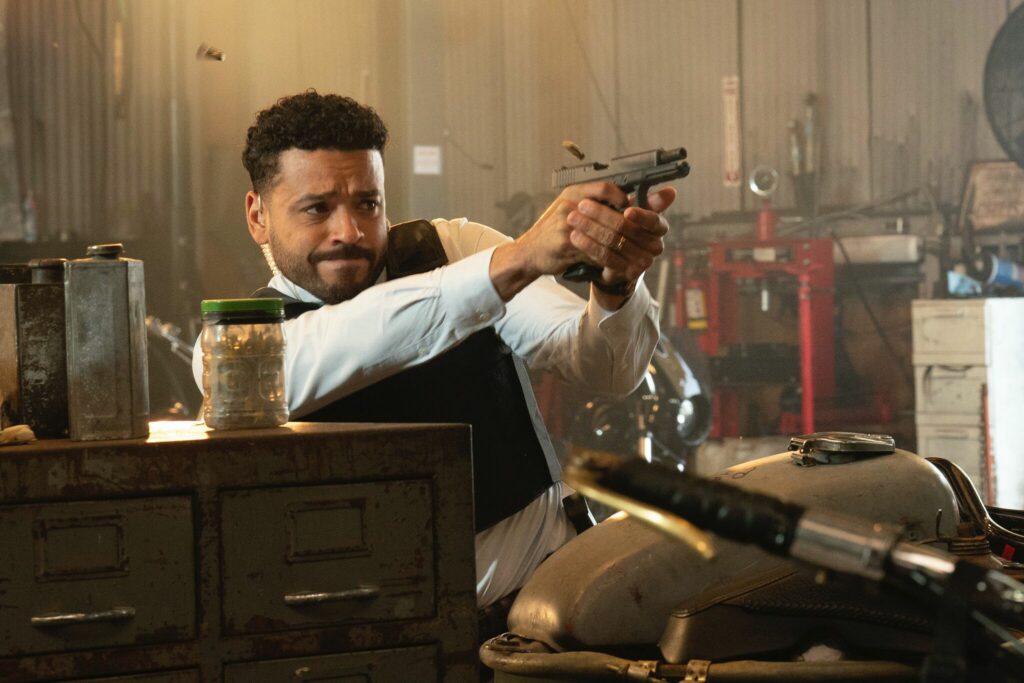
There’s a moment in every great performance when time softens, the actor dissolves, and only something ineffable, something true, remains. Ryan Broussard lives in that liminal space. Not just as a performer, but as a person: contemplative, grounded, and keenly attuned to the quiet wisdom that comes from listening more than speaking, from showing up with an open heart even when the script of life offers no guarantees. His approach to acting is less about transformation and more about the translation of emotion, instinct, and human complexity, and it’s that rare sensitivity that lingers long after the scene ends.
He speaks of storytelling not as an act of ego, but as a shared ritual, a kind of communion. In his world, the writer is a sacred guide, vulnerability is a discipline, and every role is a mirror held up to the soul, not just of the character, but of the artist himself. There’s no need to chase applause when the reward is connected; no rush toward the spotlight when the work, the real work, lies in what’s built quietly between the lines. Broussard moves through this ever-evolving industry not with noise, but with intention, with the reverence of someone who knows that the most enduring art is born not from control, but from surrender.
His presence in a scene is like a fingerprint: subtle, singular and entirely his own. And in a time when art so often races toward immediacy, he invites us back to something slower, deeper, more human. Work is itself a meditation on growth, a quiet rebellion against superficiality, and, perhaps most of all, a luminous reminder that we are always becoming.
And if you think you know Ryan Broussard, think again, this is the story that reveals the man behind the roles.


